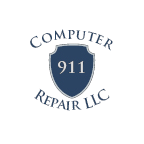Safe Internet Practices
1.) Never use lazy passwords. Here is an example of a good password: ozarKmountains1!@
2.) Do not give out your full name, address, phone number, or computer password to
anyone on line or over the phone that you do not trust or know in person. Never give anyone permission to connect to your computer unless it is your Internet Provider or
your computer repair shop.
3.) Never open e-mail attachments from strangers unless you can trust them and have security settings on your computer. Avoid Phishing Scams that may say something like, “Your CBT Bank account has been compromised” or “Your money has been added to your PayPal account..”
4.) Always keep your Anti-Virus & Malware Protections updated. While nothing protects you 100%, we have found that Malwarebytes paid edition is the most effective malware protection you can have.
5.) When installing software, NEVER do an express install. ALWAYS do a custom install.
Even when doing a custom install, watch for checked boxes trying to add malware and toolbars. What most people don’t realize is that when you click yes or okay for an install, you have overridden your anti-virus and malware protection. That’s how a lot of virus and malware infections get through. Always be careful what you download. Make sure you can trust the site. If you are in question, you can always go to Google.com and ask Google a question like, “Is (program in question) a virus or malware? Most infections come from downloading games, couponing, websites that say they can fix your computer and ask to scan it online, Java updates. Always go to Abode.com to update Adobe Flash. Uncheck boxes.
6.) Signs of an infected computer: Slower than normal, computer freezes, computer shuts down by itself, blue screens, computer acts weird, pop ups, your browser’s homepage or search options have been changed, browser redirected to a different site, Internet not connecting, CD/DVD, USB ports, mouse or keyboard aren’t working.
When these problems arise, it is better to get your computer checked out before
the viruses and malware do their damage. They can damage your operating system files and your hard drive. Never download anything off the web to try and solve these problems yourself. Most of the time it will be malicious software and can make matters
worse. Never call an internet virus removal company. A correct virus removal cannot be performed remotely.

